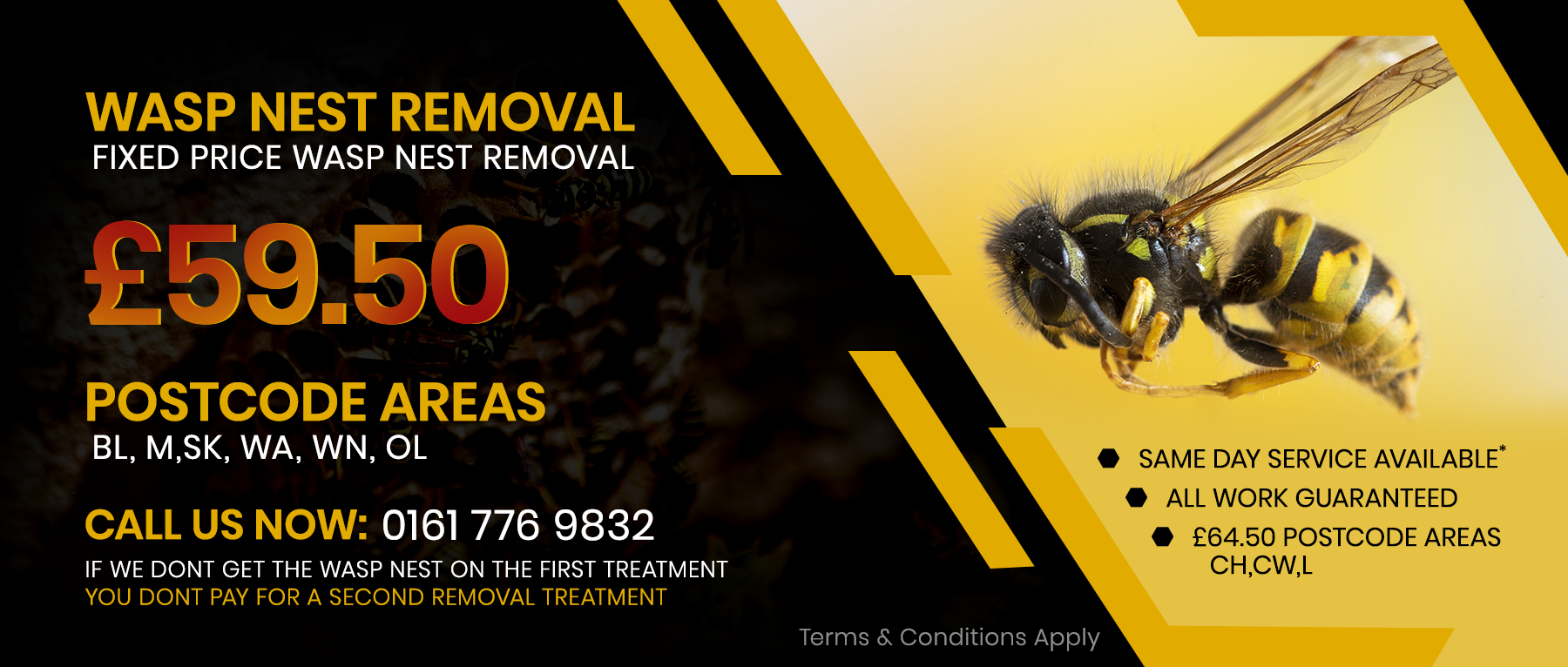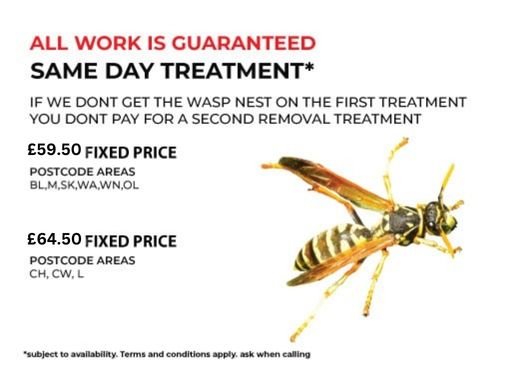

Need Help? Call us on 0161 776 9832 or drop us an email for expert pest control advice on how to identify pest infestations and help solve your problem.
Expert Leigh Wasp Nest Removal Treatment
Wasps are a diverse group that is important to the ecosystem and to agriculture. Although the familiar bright yellow, striped insects that become pests can be dangerous and even life-threatening, some species of wasp are actually useful to humans.
Reasons for Wasp Removal
Wasps are also dangerous because when they are injured or killed, such as by  swatting or crushing, they release a insecticide pheromone which provokes aggressive behaviour from other nearby wasps. This can lead to a swarm which may attack not just the person applying the Leigh wasp nest removal treatment, but also others nearby.
swatting or crushing, they release a insecticide pheromone which provokes aggressive behaviour from other nearby wasps. This can lead to a swarm which may attack not just the person applying the Leigh wasp nest removal treatment, but also others nearby.
People who are allergic to bee venom are also often allergic to wasp venom, and some people only react to wasp venom. These allergic reactions can be very strong, requiring prompt medical intervention to avoid anaphylactic shock. Other hazards associated with Leigh wasp removal include accidental insecticide contamination from sprays and a risk of a fall if the nest is high up and requires climbing to apply the Leigh wasp nest removal treatment.
Those species of wasp which do become pests are generally larger (1.5 - 2.0 cm), with yellow and black colouration and narrow waists. The narrow waist, in particular, distinguishes them from bees. A wasp can easily be mistaken for a hornet, but the true hornet is much less common in Britain.
Another feature differentiating bees from wasps is that bees are more reluctant to sting, preferring to flee unless the hive is in danger. This is because bees lose their stingers after stinging, which kills the bee after a short time. Wasps, on the other hand, do not lose their stingers, so the cost of attacking is not as high from them. As a result, they are more aggressive, increasing the need for Leigh wasp control. Wasps are also territorial and some species post "guards" who remain near the nest attacking when they notice a threat.
